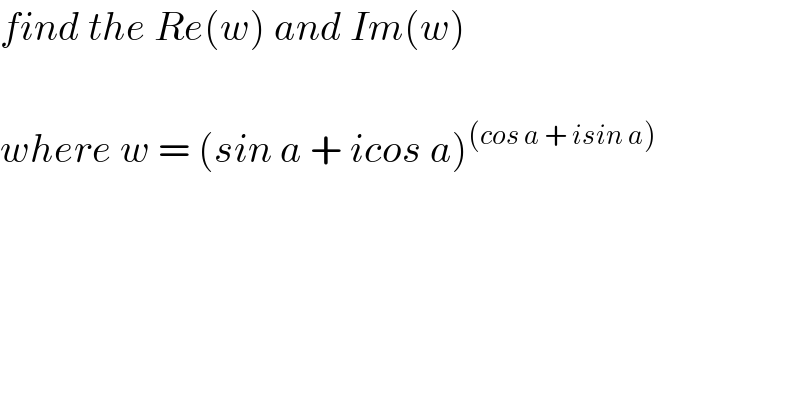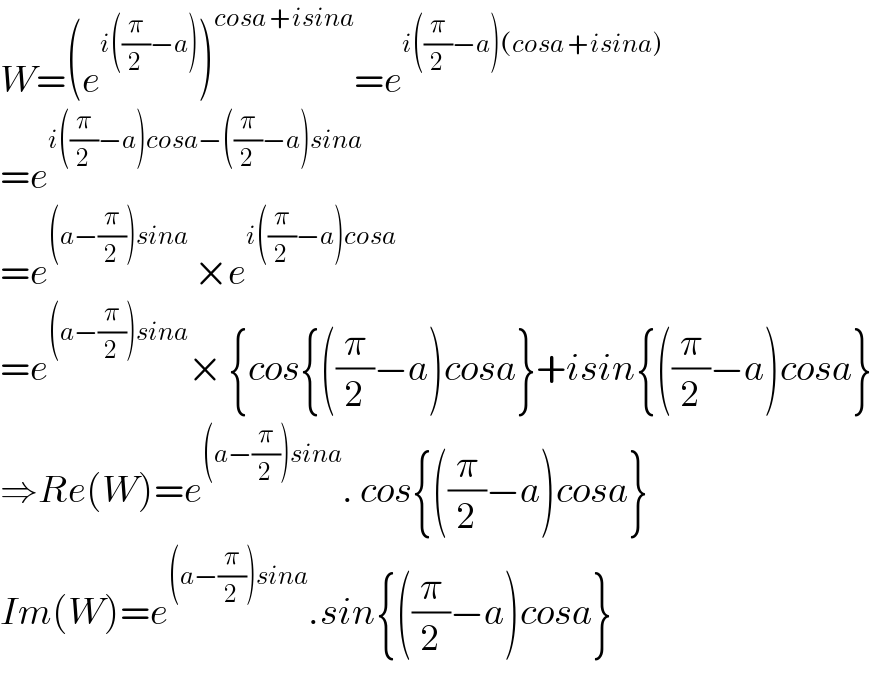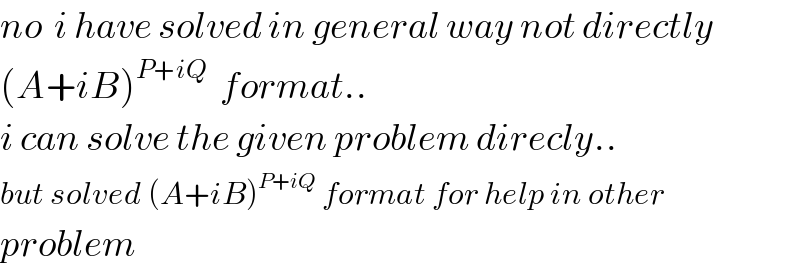
Question and Answers Forum
Question Number 73918 by arkanmath7@gmail.com last updated on 16/Nov/19

Commented by abdomathmax last updated on 16/Nov/19

Commented by arkanmath7@gmail.com last updated on 18/Nov/19

Answered by Tanmay chaudhury last updated on 16/Nov/19
![(A+iB)^(P+iQ) =e^((P+iQ)Log(A+iB)) let A=rcosθ B=rsinθ so A+iB=re^(iθ) =e^(i(2nπ+θ)) r=(√(A^2 +B^2 )) tanθ=(B/A)⇛ θ=tan^− ((B/A)) e^((P+iQ)Log(re^(i(2nπ+θ)) )) =e^((P+iQ)[log(√(A^2 +B^2 )) +i(2nπ+tan^(−1) ((B/A))]) e^([P.log(√(A^2 +B^2 )) +i(2nπP+Ptan^(−1) ((B/A))+log(√(A^2 +B^2 )) )−Q(2nπ+tan^(−1) ((B/A)))) =e^([P.log(√(A^2 +B^2 )) −Q(2nπ+tan^(−1) ((B/A)))) ×e^(i(2nπP+Ptan^(−1) ((B/A))+log(√(A^2 +B^2 )) )) now back to problem A=sina B=cosa P=cosa Q=sina log(√(A^2 +B^2 )) =(1/2)log(sin^2 a+cos^2 a)=0 tan^(−1) ((B/A))=tan^(−1) (((cosa)/(sina)))=tan^(−1) (tan((π/2)−a))=(π/2)−a so putting the value =e^([P.0−sina(2nπ+(π/2)−)]) ×e^(i(2nπ.cosa+cosa.((π/2)−a)) =e^([−(2nπ+(π/2))sina) ×[cos(2nπ.cosa+((π/2)−a)cosa)+ sin(2nπ.cosa+((π/2)−a)cosa] pls check upto this...](Q73922.png)
Commented by arkanmath7@gmail.com last updated on 16/Nov/19

Commented by Tanmay chaudhury last updated on 16/Nov/19

Answered by Tanmay chaudhury last updated on 16/Nov/19
![short method [cos((π/2)−a)+isin((π/2)−a)]^((cosa+isina)) =e^(i((π/2)−a)(cosa+isina)) =e^((a−(π/2))sina+i((π/2)−a)cosa) =e^((a−(π/2))sina) ×[cos{cosa((π/2)−a)}+isin{cosa((π/2)−a)}] =e^((a−(π/2))sina) cos{cosa((π/2)−a)}+i e^((a−(π/2))sina) sin{cosa((π/2)−a)}](Q73935.png)
Commented by peter frank last updated on 17/Nov/19

